Frame
Education, especially when identified as a responsibility of the state, has long been held as critical to a country’s socioeconomic development. In many frameworks, education is also seen as an effective tool for critical and autonomous engagement with political and civil structures of society. For those same reasons, however, an ineffectively designed or underserved education system runs the risk of reproducing socio-cultural constraints that hamper the next generation’s opportunities nd chances for the aspirations stated previously. This explains the emphasis in Goal 4 of the global Sustainable Development agenda for 2030 on inclusive, equitable and quality education. These dimensions are important to consider not only in expanding educational opportunities but also as mediators of 16 other SDGs. In the current environment of an unprecedented global pandemic, equitable access to, and participation in, a quality learning environment has taken on an extended hue, adding the urgency of distance/remote/digital learning options to an already complex variable mix.
Local Context
Developing countries are especially well-placed to benefit from more sustained attention to SDG 4, with its positive effects on goals like maternal health, protection of the environment and others that require the support of a literate and engaged population. With nearly 1/3 of its populace within the school going age range, and 2/3 within a higher and further education age range, Pakistan is an opportune context for strategic and significant investments in educational planning and delivery. Yet nearly half of Pakistani primary students cannot demonstrate basic numeracy and literacy skills. The country’s education expenditure on one of the world’s largest youth populations remains critically low even in the South Asian region, and despite a population growth rate of 2.5% and high migration rates into their cities, most provinces in Pakistan still lack effective local governance models for service delivery.
Alongside gender, resource, ethnic and income inequities, the context also struggles with a large, but ineffective state teaching service and an upcoming new, but hotly contested national curriculum. Above all, Pakistan’s largest looming problem remains over 20 million out-of-school children across the country. Their educational loss can translate into a generational loss of not just basic literacy and numeracy skills, but all the additional skills and abilities required to live a meaningful life (e.g. sustained/entrepeneurial employment; autonomous reading; family planning; civic engagement).
Research Problems
Systemic:
- How does education contribute to inter-generational mobilities, whether socio-economic or value-centred?
- How do core components of educational practices, such as teaching/learning and governance, mediate social change through a learning-coherent framework?
- How can education technology improve emergency preparedness in Pakistan, especially for learning loss recovery amongst OOSC or due to widespread emergency school closures?
Delivery:
- What relationships exist between social enterprise and quality education service delivery in the Pakistani education ecosystem? How might these compare within the South Asian region?
- How does teacher motivation, identity and professional development shape effective outcomes delivery in a classroom?
- What kind of prioritisation model can optimise higher educational outcomes for Pakistanis universities in a resource-constrained environment?
- What components of distance/digital learning are most agile for the Pakistani student and adult non-formal educational space?
Related Fellows
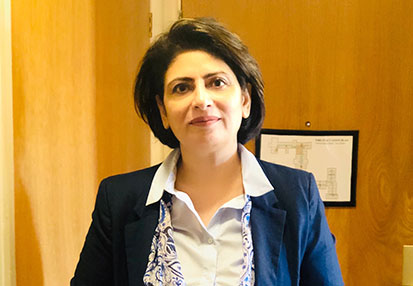
Dr. Tamim has her PhD from University of Cambridge as a fully funded RECOUP scholarship, and MPhil RSLE (Research in Second Language Education Across Cultures) from Cambridge, UK as a British Council Chevening scholar. In addition, she also has an MA ELT from Kinnaird College for Women University and MA English from the University of Punjab, Pakistan. Dr Tamim has led several funded research projects with national and international partners, including those with USAID, British council and the World Bank. She has also published and presented research papers at a number of national and international forums. Her work covers issues of social justice, equity and inclusivity in education with specific reference to languages in education, language policy, gender and caste.
She is currently Associate Professor at the School of Education, and the faculty lead for the Pedagogical Partnership Programme at LUMS. Earlier she was Head Faculty of Social Sciences at Lahore School of Economics. She also worked as Director Academics at SZABIST, overseeing work across its five campuses (Karachi, Islamabad, Larkana, Hyderabad and Dubai). While at SZABIST she set up and later led the Department of Education.
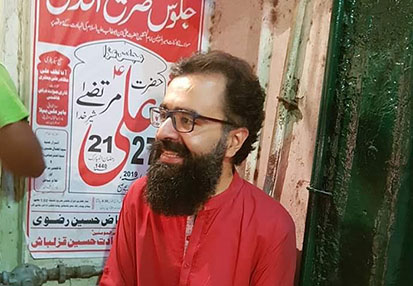
Ali Usman Qasmi is an Associate Professor of History at the School of Humanities and Social Sciences at LUMS since 2012. He received his PhD from the South Asia Institute of Heidelberg University in 2009. Before joining LUMS, he was a Newton Fellow for post-doctoral research at Royal Holloway College, University of London. He has published extensively in reputed academic journals such as Modern Asian Studies and Journal of Islamic Studies. He is the author of Questioning the Authority of the Past: The Ahl al-Qur’an Movements in the Punjab (Karachi: Oxford University Press, 2011), and his second monograph, The Ahmadis and the Politics of Religious Exclusion in Pakistan (London: Anthem Press, 2014), was the recipient of Karachi Literature Festival (KLF) Peace Prize in 2015.
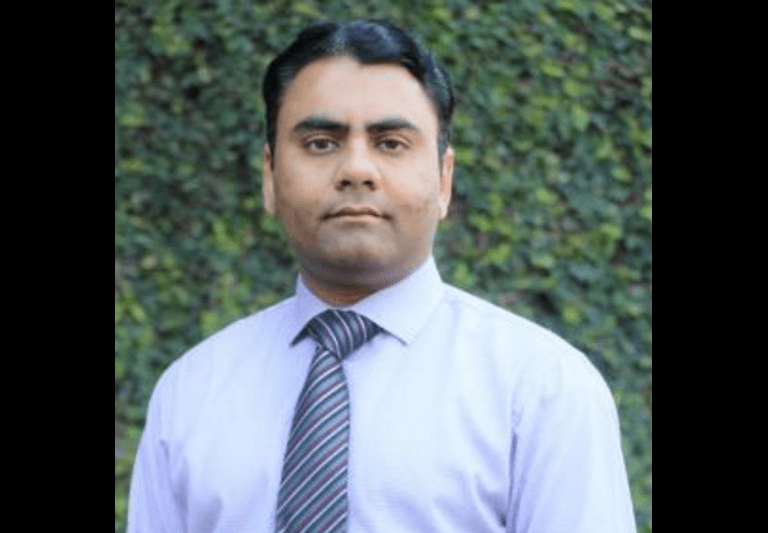
Dr. Hassan Mohy-ud-Din is the Director of the Clinical and Translational Imaging lab and an Assistant Professor at the LUMS School of Science and Engineering. He completed his Ph.D. and MSE in Electrical and Computer Engineering and MA in Applied Mathematics and Statistics from Johns Hopkins University (2009 – 2015). From 2015 – 2017 he was a postdoctoral associate in the Department of Radiology and Biomedical Imaging at the Yale School of Medicine. From 2017 – 2018 he was a Clinical Research Scientist at Shaukat Khanum Memorial Cancer Hospital and Research Centre. His research lies at the intersection of Applied Mathematics and Medical Imaging. His work on dynamic cardiac PET imaging won the 2014 SNMMI Bradley-Alavi fellowship and the 2014 SIAM student award.
He is also a recipient of the 2019 Charles Wallace Fellowship from the British Council, Pakistan. His work on non-invasive biomarker quantification for coronary microcirculation was featured as a news story in Medical Physics followed by a dedicated review article from Stanford. He also serves as a reviewer on major scientific journals (Clinical Cancer Research, Neuro-oncology Advances, Medical Image Analysis, Neuroimage, Physics in Medicine and Biology, Medical Physics, IEEE Transactions on Image Processing to name a few) and is a member of IEEE and SIAM societies. He also carries a university teaching experience of over 15 years (UET Lahore, SBASSE LUMS, and Johns Hopkins University) and is deeply interested in the development, implementation, and evaluation of (pragmatic and effective) pedagogical approaches in schools and colleges.

Ghazal Asif is an Assistant Professor of Anthropology at LUMS. Her research and teaching focus on postcolonial regimes of legality and governance; domesticity, kinship, and gender; and everyday life, memory, and identity in multi-ethnic and multi-religious societies. Using in-depth ethnographic and archival methods, Ghazal’s research examines how the Hindu religious minority in Sindh navigates the contemporary regulation of difference and identity in a modern Muslim polity. She focuses on everyday practices of political claim-making and the management of domestic relations by Hindu women.
Ghazal holds a doctoral degree in Cultural Anthropology from Johns Hopkins University. Her dissertation research has been supported by the Wenner-Gren Foundation, the Social Science Research Council, and the American Institute of Pakistan Studies; and received the Honorable Mention for the 2021 S.S Pirzada Dissertation Prize in Pakistan Studies.

Dr. Muhammad Sabieh Anwar is a Professor of physics, Ahmad Dawood Chair, and Dean at the LUMS Syed Babar Ali School of Science and Engineering. He helped establish the physics department at LUMS and was among the principal founders of the School’s experimental facilities and curriculum. Ideas from his physics instructional laboratories have been replicated in ten Pakistani universities. He has played an important role in introducing innovative learning tools, mostly revolving around insightful homegrown physics experiments, in Pakistan’s universities. His lectures are interspersed with in-class live demonstrations and are widely viewed over the internet.
Sabieh’s research interests encompass spintronics, magnetism, and optics. Sabieh has published around eighty research articles in international journals including Science, the Physical Review series, Optics Express, Journal of the American Chemical Society, and Proceedings of the National Academy of Science. His book on tabletop quantum mechanics experiments with single photons has recently been published by the Institute of Physics, UK.

An economist, Maha has extensive experience in designing and evaluating programs, products and policies to improve resource allocation, service delivery, welfare and impact. Her research is at the intersection of development, health and behavioral economics. She undertakes field experiments in partnership with governments and non-governmental organizations in South Asia.
She works closely with local research firms and universities. She enjoys carefully collating novel and large datasets that are necessary to answer the questions at hand. From 2020-2022, she actively engaged in a multi-pronged analytical response to COVID in Pakistan. Prior to that, she set up the Analytics Wing at CERP that is focused on embedding data in the decisions and operations of private and public sector companies to increase efficiency, impact and profit.
She has also led research experiments at CERP and at the World Bank in the fields of education, public finance, and governance. She combines her coursework in economics with her interest in entrepreneurship. She has also served as the Director of Policy at the Mahbub-ul-Haq Research Centre at LUMS and a faculty member in the LUMS Economics Department.

Dr Tania Saeed is an Assistant Professor of Sociology at the School of Humanities and Social Sciences at LUMS. As a sociologist of education she is trained in qualitative research methods, with expertise in education and securitization, citizenship and social justice. Her work ranges from exploring Islamophobia and securitization in the context of the UK, to examining the increasing securitization of education in Pakistan. She is the author of Islamophobia and Securitization. Religion, Ethnicity and the Female Voice (2016, Palgrave Macmillan) and the co-author of Youth and the National Narrative. Education, Terrorism and the Security State in Pakistan (2020, Bloomsbury).
Her on-going research explores the politics of identity and religious ideology through the teaching of language and literature subjects in refugee, government and low cost private schools in Pakistan. She is also collaborating on research with colleagues at the University College London (UCL) to examine the role of historiography in the teaching of history in schools in Punjab. As a Co-Investigator on a GCRF Development Grant with colleagues from the University of Bristol she is supporting civil society initiatives towards using digital media in the teaching of citizenship with a focus on education and peace.
Saeed has a DPhil in Education from the University of Oxford, where she was a Wingate Scholar (2011-12) and an HEC scholar (2008-11), and an MSc in Gender, Development and Globalization from the London School of Economics and Political Science (LSE). She is the elected Chair (2019-21) of the South Asia Special Interest Group (SA SIG) at the Comparative and International Education Society (CIES), US.
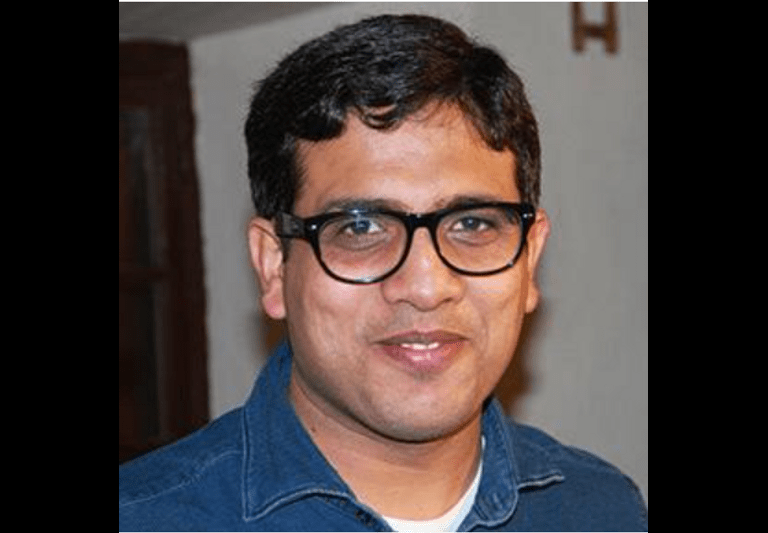
Before joining LUMS Physics Department Dr. Rafi Ullah was a post-doctoral staff scientist at the Lawrence Livermore National Laboratory, CA, USA.
Rafi UllahAssistant Professor at Syed Babar Ali School of Science and Engineering, LUMS. Before joining LUMS Physics Department Dr. Rafi Ullah was a post-doctoral staff scientist at the Lawrence Livermore National Laboratory, CA, USA. He has a general interest in the computational and theoretical study of fundamental as well as applied problems within condensed matter physics. Particularly, the quantum simulation of electron dynamics in response to strong non-adiabatic external perturbations in various contexts such as radiation damage, non-adiabatic coupling of molecular vibrations with the substrate electrons (metal surfaces), defect dynamics, and plasmonics. He is also interested in studying matter under extreme (temperature and pressure) conditions using first-principles molecular dynamics and metadynamics. More recently he has been learning how to apply machine learning tools to material science problems.
He is also interested in the development and integration of numerical techniques into the pedagogical teaching of physics
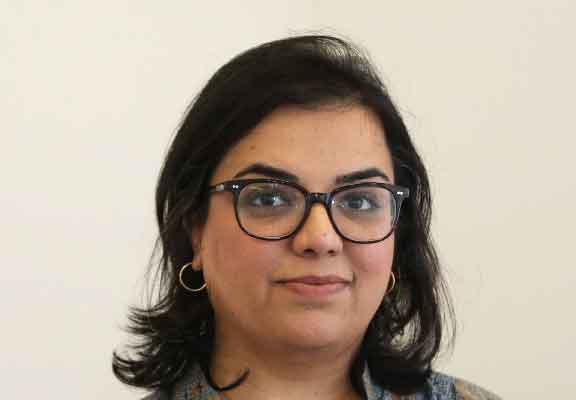
Dr. Rabea Malik is a Research Fellow and CEO at IDEAS with over 10 years of experience in empirical mixed methods research in Pakistan.
Rabea’s expertise lies in application of sociological and political economy frameworks to questions of exclusion, school governance and service delivery in education. Rabea has led research projects on marketization of primary education, public private partnerships, school-based management, inclusive education and effective teaching. She was the country co-I in Pakistan for Teaching Effectively All Children, was the technical lead for the evaluation of the Punjab Education Sector Program II
She is currently undertaking a study on bureaucratic practice and delivery in education in Punjab and Sindh, using qualitative retrospective comparative methods. She has published on inequality in education, teaching practices and marginalization in government classrooms, experiences of learning for children from marginalized backgrounds.
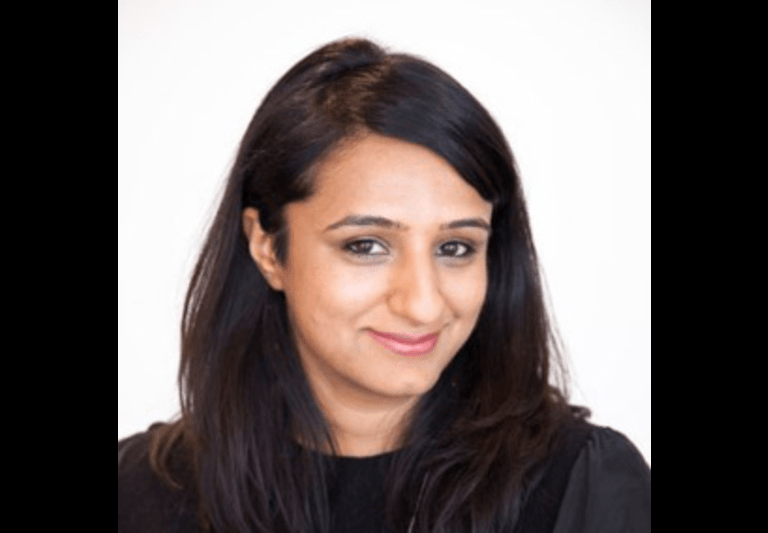
Moizza B Sarwar’s main area of work is social policy, with a focus on the political economy of the design, implementation and delivery of social protection policies and service delivery (in education and health) for vulnerable populations in low- and middle-income countries.
Moizza has over 11 years of experience in managing, undertaking and publishing cutting-edge qualitative research projects. Most recently, she has been working on research to advance the ‘leave no one behind’ agenda, by evaluating national policy systems and programmes on their sensitivity to marginalised populations in Pakistan, Nepal, Philippines, Kenya, Ghana, South Africa and Lesotho. Her research data is gathered through in-depth fieldwork and in-country focus group discussions with vulnerable populations in rural, peri-urban and urban settings and carrying out elite interviews with key politicians and civil servants as well as analysis of secondary quantitative and qualitative data. Moizza holds a PhD in Social Policy from the University of Oxford.
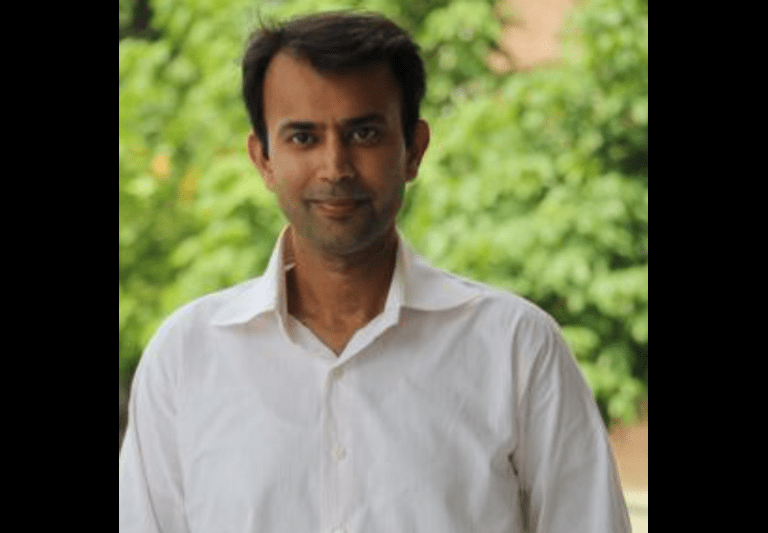
Suleman Shahid is an Assistant Professor of Computer Science at the Syed Babar Ali School of Science and Engineering, LUMS. Dr. Shahid directs the ‘Computer-Human Interaction and Social Experience Lab’ (CHISEL).
His research interests include assistive technologies (mobile apps and VR/AR systems) to enhance the quality of life of persons with disabilities (e.g. autism, dyslexia, visual impairment) and older adults, educational technologies for children (child-computer interaction), and affective computing. More recently he has become interested in ‘information and communication technologies for development’ (ICT4D) where he takes a multidisciplinary approach to designing interventions in the areas of education and health. Since 2009, he has been offering consultancy and training services in the areas of design thinking and user experience (UX) design and strategy.
Dr. Shahid received his Ph.D. in human-computer interaction in 2011 from Tilburg University, the Netherlands, and PDEng (Professional Doctorate in Engineering) in 2007 in the User System Interaction program from the Eindhoven University of Technology, the Netherlands.
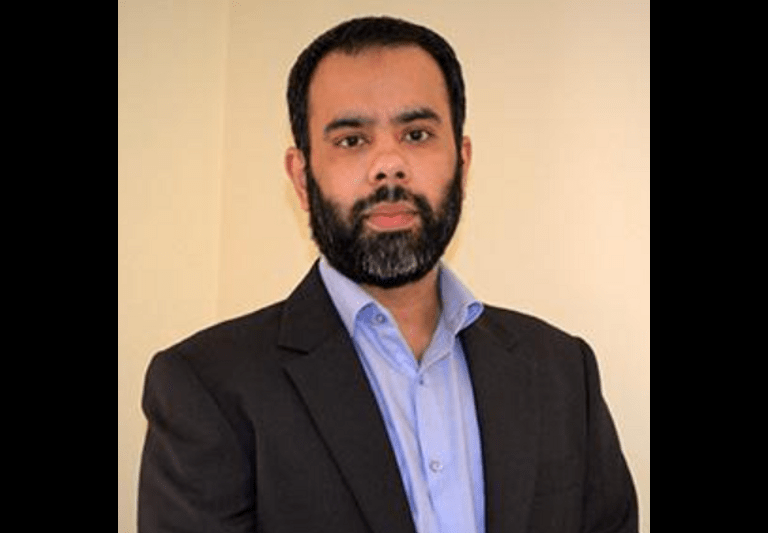
Zubair Khalid is an Associate Professor at the Syed Babar Ali School of Science and Engineering, LUMS. Dr. Khalid’s research is focused on the development of new signal processing techniques to analyze signals defined on the sphere, analysis and processing of signals defined on the sphere find applications in various fields of science and engineering, such as cosmology, geophysics, acoustics, and medical imaging.
Dr. Khalid was awarded University Gold Medal and Industry Gold Medals from Siemens and Nespak for overall outstanding performance in Electrical Engineering during his undergraduate studies. Additionally, he was a recipient of an Endeavour International Postgraduate Award for his Ph.D. studies.
Dr. Khalid received his Ph.D. degree in Engineering from the Australian National University of Canberra, Australia in 2013
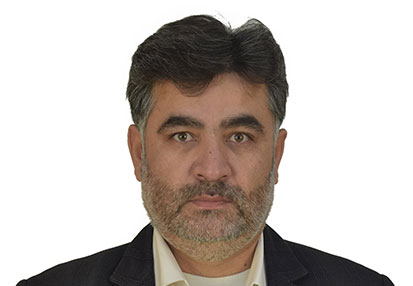
Gulab Khan acquired his PhD in 2013 in educational theory and policy from the College of Education, Pennsylvania State University, United States. He has over 20 years’ experience in the field of education (K through higher education) in both the private and public sector. He started his career in education in 1999 and, for over 16 years, remained associated with the Aga Khan Education Service, Pakistan (AKESP), a subsidiary of the Aga Khan Development Network. At AKESP, he assumed different portfolios ranging from lecturer (taught chemistry to students in grades 8 through higher secondary), school principal, regional head of monitoring, evaluation & research, and manager academics. In 2015 he switched to higher education as an assistant professor at the University of Swat where he also assumed an additional portfolio as Director of Advanced Studies. In 2017, he moved to National University of Sciences and Technology (NUST) in Islamabad.
Gulab joined Syed Ahsan Ali and Syed Maratib Ali School of Education (SoE) at LUMS in 2018 as an assistant professor. His research interests lie at the intersection of policy and practice on issues related to teacher quality, teacher status, educational leadership, and school improvement.
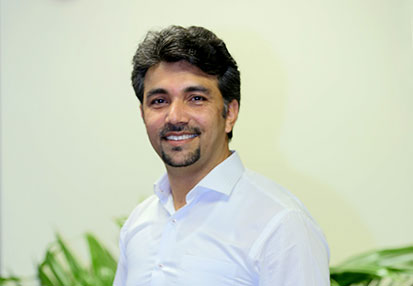
Dr. Qaisar Khan is serving as an Assistant Professor at the School of Education, LUMS. Previously, he taught basic economics as a lecturer and microeconomics, development economics and research methods as a teaching fellow at KDI School of Public Policy and Management, South Korea. He has also worked as a research fellow in the project titled “international study of learning in higher education,” a joint collaboration of KDI School and Stanford University. Besides, he has over seven years of work experience in managing and implementing development projects with various national and international organizations in Pakistan.
Dr. Khan obtained his PhD in Development Policy from KDI School of Public Policy and Management, South Korea, and a Masters in Development Policy with majors in Public Finance and Social Policy from the same institute. His research interests lie in applied microeconomics particularly in education, health and labor. His recent research examined the causal link between fertility (quantity) and educational outcomes (quality) within families in Pakistan. His work is the first to attempt quality-quantity tradeoff in Pakistan. His research also studied the effect of family planning exposure on fertility choices and reproductive health care in rural Pakistan.

Dr. Faisal Bari is the Interim Dean of the Syed Ahsan Ali and Syed Maratib Ali School of Education (SoE) at LUMS. He is also an Associate Professor at SoE and the School of Humanities and Social Sciences. He has previously served as Head of the Economics Department from 2006-2008. Dr. Bari is also a Senior Research Fellow at the Institute of Development and Economic Alternatives (IDEAS). He is a former Executive Director and current research fellow at the Mahbubul Haq Research Centre (MHRC).His current teaching interests are in the areas of philosophy of education, inclusion, economics of education, game theory, microeconomics and industrial organization.
Dr. Bari has over twenty years of research experience in the field of industrial economics, development economics and education economics. Previously, he has worked as Deputy Country Director for Pakistan in the Central Eurasia Project and as an education economist for South Asia at the Open Society Foundation. He was a visiting faculty member at Yale University in 2000-2001. He has also consulted for various multilateral and bi-lateral agencies including the World Bank, United Nations Development Program (UNDP), Department of International Development (DFID) and the Asian Development Bank (ADB).
He writes a fortnightly column for the English Daily The Dawn.
Dr. Bari obtained a Doctorate from McGill University and a Master’s Degree (Philosophy) from the University of Punjab. He has two Bachelors’ degrees, one from University of Oxford and another from Government College, Lahore. Dr. Bari was the recipient of the 1988 Rhodes Scholarship for Pakistan.

Sabrin Beg is an Assistant Professor of Economics at the Lerner College of Business and Economics of the University of Delaware. Beg has a Ph.D. in Economics from Yale University, with a primary area of expertise in development, economic history, political economy, and applied microeconomics. Beg is currently working on projects in the above fields in Pakistan, Bangladesh, Ghana, and India. Recent work by Beg attempts to understand the process of structural change in developing economies, with a focus on property rights, gender, and human capital.

Soufia’s work is anchored in broad-spectrum qualitative research methods that can help explain the political economy of educational experience in the Pakistani context. Specifically, she investigates how system design engenders inefficiencies and frictions that contribute to contested notions of identity in sites of learning, and their implications for effective service delivery.
This theme informs two of her current projects. The first is a qualitative investigation she leads into Pakistani public school teacher motivation and identity as part of the Research on Improving Systems of Education (RISE) Programme’s Political Economy component housed at the University of Pennsylvania. The second is a process tracing exploration she co-leads into how delivery models are constructed and enacted by elite public education decision-makers as part of the Pakistan team for Lahore-based think tank IDEAS and its global partners, The Education Commission and the Blavatnik School of Government at the University of Oxford.
Previously, Soufia was Technical Advisor to the School Education Department, Punjab where she worked on key policy initiatives with the government, including developing a 5-year roadmap for the province’s most urgent reform needs. This project payed special attention to the need for a coherent learning outcomes dataset as well as governance strategies for whole-system improvement. She was also a member of the Punjab Examination Commission, where she led the Technical Committee for the province’s 2019 Assessment Policy Framework and, between 2015 and 2018, a research advisor to Alif Ailaan, Pakistan’s first education advocacy campaign.
Dr Siddiqi was Pakistan’s 2010 Rhodes Scholar to the University of Oxford, where she read for a DPhil Education (2017) and MSc Comparative and International Education (2011) at St. Anne’s College. Her first degree is in Economics from Government College University Lahore.
Postal Address
LUMS
Sector U, DHA
Lahore Cantt, 54792, Pakistan
Office Hours
Mon. to Fri., 8:30 a.m. to 5:00 p.m.

